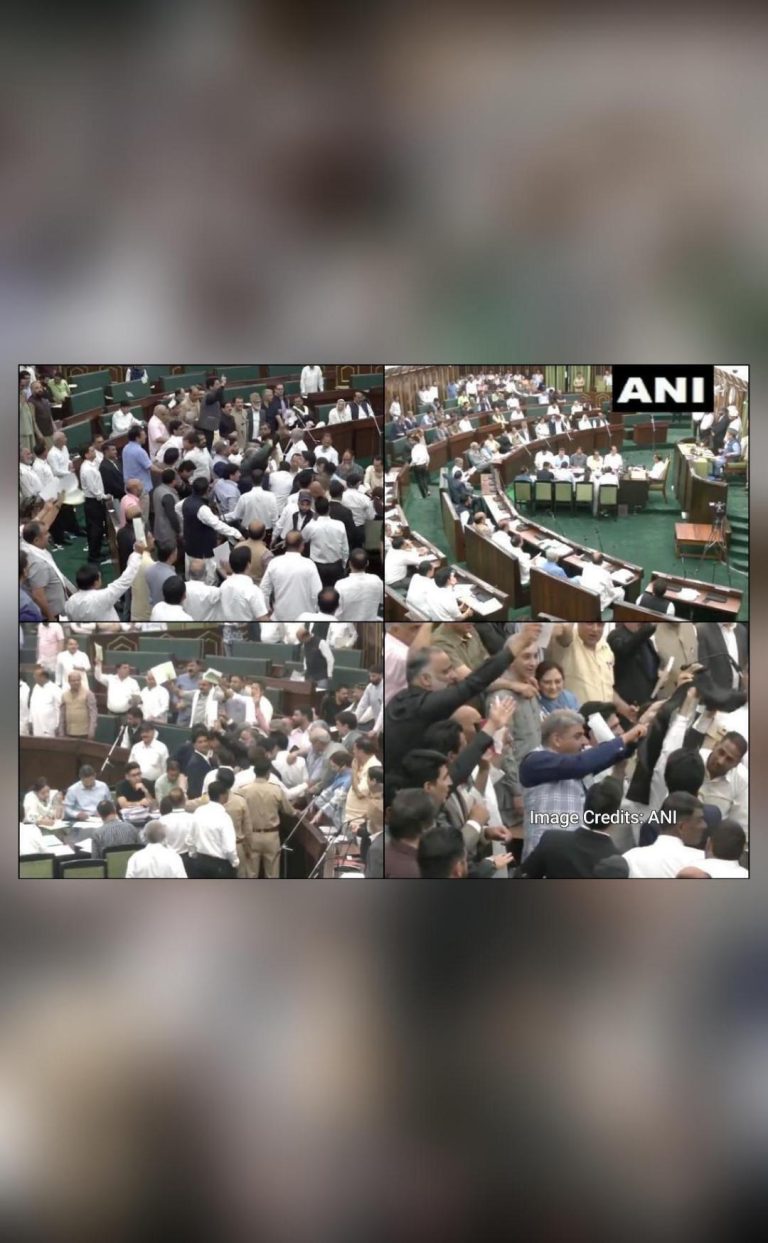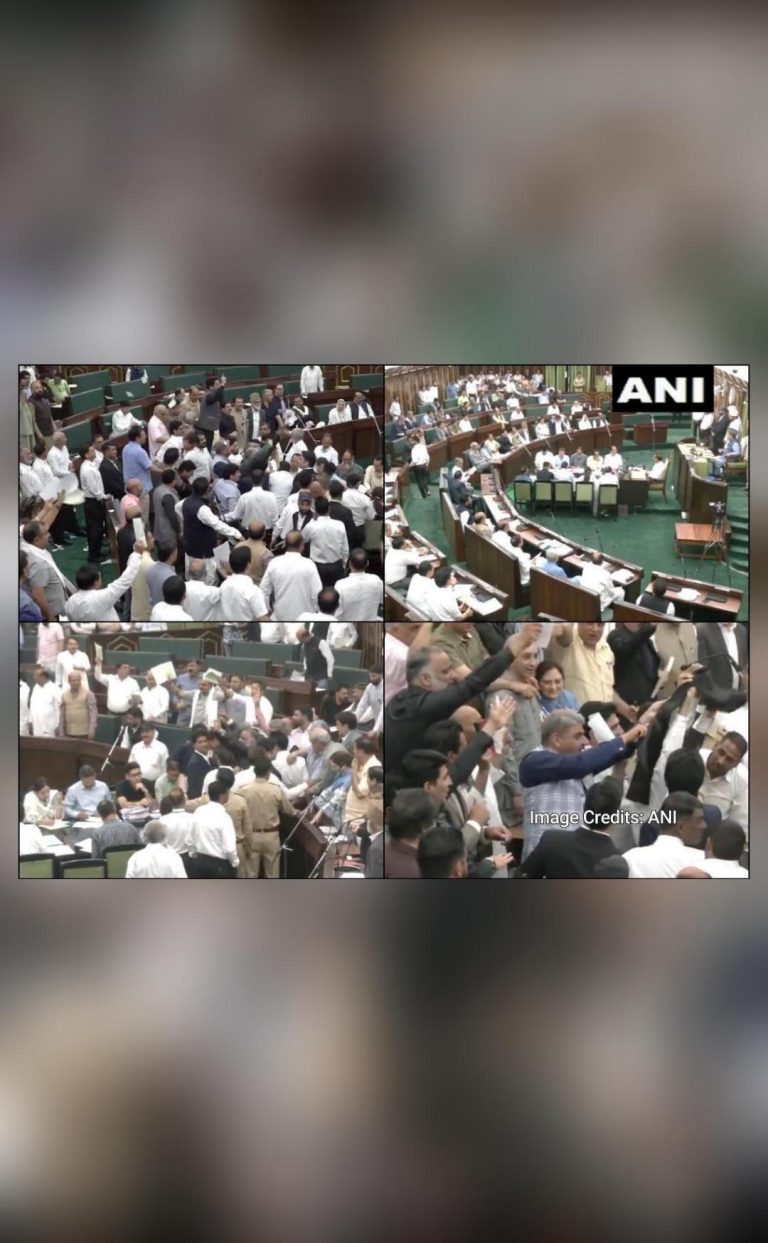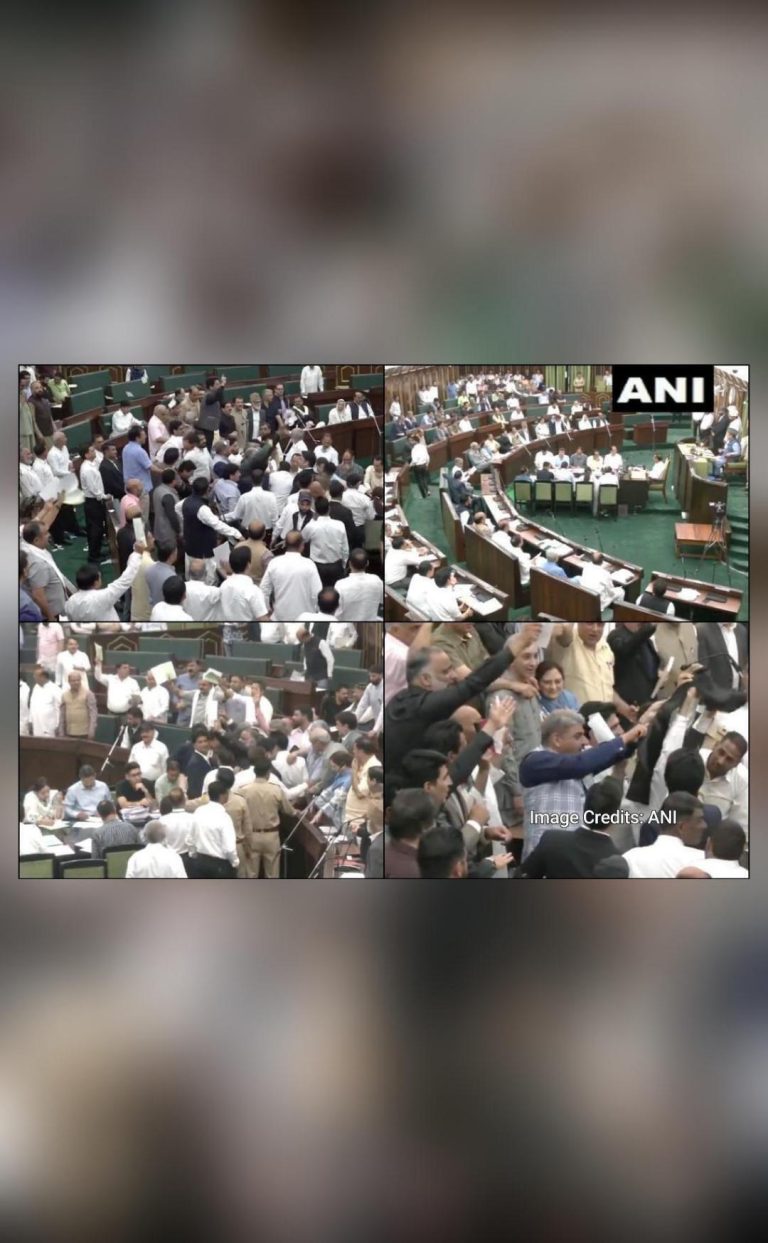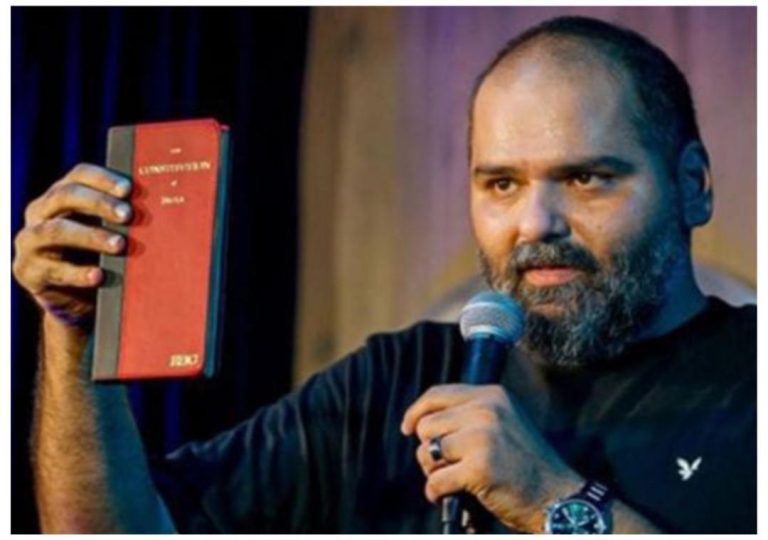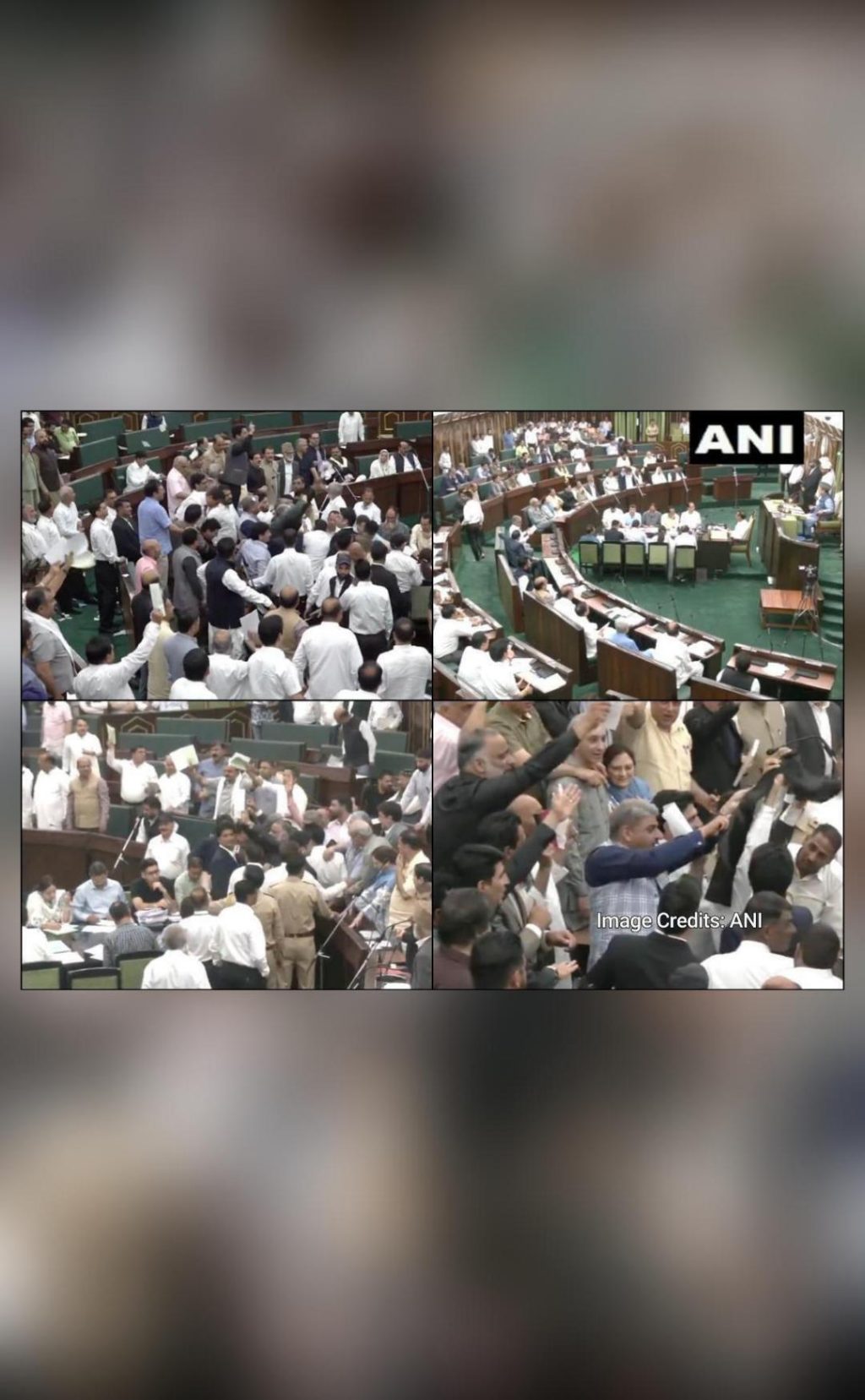
Jammu & Kashmir Assembly adjourned amid uproar over Waqf Act
The Jammu and Kashmir Assembly witnessed a dramatic turn of events on Monday, as the House was adjourned amidst chaos and uproar over the Waqf Act. The scene unfolded after Speaker Abdul Rahim Rather denied an adjournment motion, which had been moved by National Conference MLAs to discuss the contentious issue. The BJP, however, protested the decision and demanded that the Question Hour be held as scheduled.
The drama began when National Conference MLAs moved a motion to adjourn the Question Hour to discuss the Waqf Act, which has been a contentious issue in the state for some time now. The Waqf Act is a law that governs the management of religious properties, and its implementation has been a subject of controversy in Jammu and Kashmir.
However, the Speaker denied the adjournment motion, leading to strong protests from the National Conference MLAs. They argued that the Waqf Act was a critical issue that required immediate attention and debate in the House. The MLAs claimed that the Act was being misused by certain elements to grab religious properties, and that the government was not doing enough to address the issue.
The BJP, which is a key ally of the PDP-led government, also protested the Speaker’s decision. They demanded that the Question Hour be held as scheduled and that the Waqf Act not be discussed in the House. The BJP MLAs claimed that the National Conference was trying to create a controversy over the Waqf Act to gain political mileage.
As the debate escalated, the House became increasingly chaotic, with MLAs from both sides shouting slogans and trying to outdo each other. The Speaker’s chair was also occupied by a BJP MLA, who claimed that he was not satisfied with the manner in which the Speaker was conducting the proceedings.
Eventually, the Speaker had to adjourn the House to restore order. The adjournment was seen as a victory for the National Conference, which had been pushing for a debate on the Waqf Act. The party’s MLAs claimed that the adjournment was a major setback for the government and that it would have to reconsider its stance on the Waqf Act.
The Waqf Act has been a contentious issue in Jammu and Kashmir for some time now. The Act was passed in 1996, but its implementation has been slow and plagued by controversy. The National Conference has been demanding changes to the Act, claiming that it is being misused by certain elements to grab religious properties.
The PDP-led government, however, has defended the Act, claiming that it is necessary to ensure the protection and management of religious properties in the state. The government has also claimed that it is working to address the concerns of different stakeholders, including the Shia and Sunni communities, who have been affected by the Act.
The controversy over the Waqf Act is not new. In 2019, the High Court of Jammu and Kashmir had stayed the implementation of the Act, following a petition filed by a group of people who claimed that the Act was unconstitutional. The petitioners argued that the Act was violative of the fundamental rights of the people, including the right to property and the right to freedom of religion.
The stay was later lifted by the High Court, but the controversy over the Act continues to simmer. The National Conference has been demanding that the Act be repealed, while the PDP-led government has been pushing for its implementation.
In conclusion, the adjournment of the Jammu and Kashmir Assembly over the Waqf Act is a major development in the state’s politics. The controversy over the Act is a complex one, with different stakeholders having different opinions on its implementation. The National Conference has been pushing for a debate on the Act, while the PDP-led government has been defending it.
As the debate continues, it remains to be seen how the issue will be resolved. One thing is certain, however – the Waqf Act is not going away anytime soon, and its controversy is likely to continue to simmer in the background of Jammu and Kashmir’s politics.
